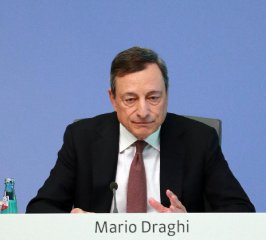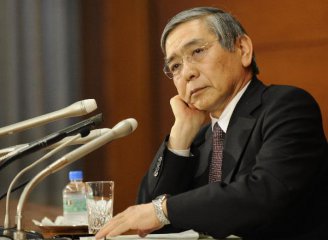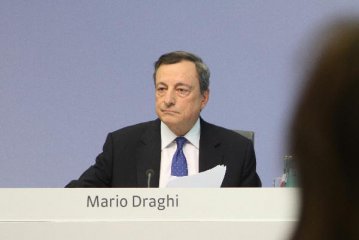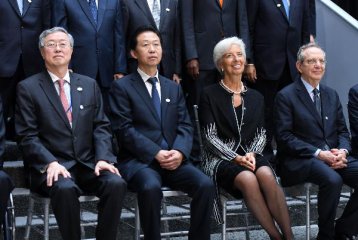
In December 2017, China’s economic work conference set the keynote for macropolicy in 2018. Proactive fiscal policy should be maintained and moderate monetary policy should be kept neutral. As for the specific orientation for fiscal policy and monetary policy, Lu Zhengwei, chief economist from Industrial Bank and Huafu Securities Co., Ltd., viewed that logics for macropolicy is more tolerant to economic growth and requires controlling risk of high leverage and improving efficiency. Therefore, in terms of fiscal policy, the government will optimize expenditure structure and provide more capitals to alleviate poverty and prevent pollution; regarding monetary policy, it will pay more attention to guarding against systematic risk by focusing on deleverage and taking advantage of interest rate of monetary market.
Not to spend money like before
China’s economy is now chasing for high-quality development instead of fast growth, according to report of the 19th National Congress of the Communist Party of China. In the opinion of Lu, the most important theory about macro-economy in the 19th National Congress is that Chinese government has focused more on quality other than economic growth. “As long as economic growth slowed down a little in the past, China might need to carry out fiscal incentives and relax monetary policy. But as now economic growth speed is not so important anymore, the above measures are not necessary.”
This directly leads to change in fiscal policy, which means that major function of fiscal policy is not to stimulate economy but is supposed to optimize structure of fiscal expenditure. Lu proposed “not to spend money like before”. After the structure is adjusted, a great majority of fiscal expenditure should be used in targeted poverty alleviation and pollution prevention, which are two of the three tough targets.
For local regions, this means that local governments need to change the mode with economic development driven by investment. Over last several years, infrastructure investment was regarded as a weapon for stable economic growth but would add debts. Lu said that if local governments faced great pressure in balancing revenue and expenditure, adding investment under such situation will actually increase risk of economic development. The typical example is Baotou metro project which has been halted in case of excessive debts by local government. Therefore, local government should reduce expenditure in investment and pay more attention to debt management.
Interest rate to rise along with leverage ratio
Lu puts forward that priority of monetary policy in 2018 is to reduce leverage. China’s national conference on financial work proposed to deal well with relationship of stable economic growth, structural adjustment and control over quantity. Controlling the quantity means making macro-leverage ratio under control.
The so-called macro-leverage ratio refers to the ratio between debts and nominal GDP. Preventing macro-leverage ratio from going up means that debt growth cannot be higher than GDP growth. The central government has set the actual GDP growth and growth in commodity price. Therefore, nominal GDP growth has been set. What local governments need to do is to control debts, including existing debts and new debts, which are both composed of principals and interests.
Among them, the principal of existing debt is constant. To control debt, it can be done from the three aspects: interest rate of existing debt, principal of incremental debt and interest rates of incremental debt. As the incremental debt is considerable, the Central Economic Work Conference asked to “maintain a reasonable scale of monetary credit and social financing", which means to control the principal and interest rate of new debt.
On the one hand, the impact of loan interest rates on new debt is bi-directional. Although lower interest rates help to reduce the interest burden on new debt, encourage for over borrowing may result too much principal of new debt. Vice versa, higher interest rates can help control the demand for new financing, but will increase the debt interest burden.
On the other hand, a direct control on the benchmark lending rate will immediately affect the interest payment cost of debt. Data show that as of November 2017, the social stock financing via debt amounted about 150 trillion yuan. As the benchmark lending rate rises every 0.25 percent, the interest payment of non-financial companies for their existing debt will increase 375 billion yuan, equivalent to 5.5 percent of the accumulative profits of industry enterprises during the period from January to November 2017. Therefore, it is not a good way to control the demand for new debt by adjusting the benchmark interest rate.
Is there any solution? Lu Zhengwei said that we could control the existing debt and the principal and interest rate of new debt at the same time by taking the advantage of the relations between China’s loan interest rates and its money market interest rates.
In addition, the short-term adjustment of the interest rate in the money market is more flexible. However, the short-term adjustment of the benchmark interest rate usually has strong directional rigidity. Once it is raised, it is generally difficult to shift the interest rate in the next 1-2 years. From this perspective, the money market interest rates are also more convenient tools.
Therefore, Lu Zhengwei predicted that in the monetary policy operation to control the macro-leverage rate in 2018, the interest rate in the money market will be used as the main tool. As a result, there will be both raise in "interest rate and leverage". As long as the financing impulse exceeds the desired level, the macro leverage will rise and the money market interest rate will not be afraid to ascend until the leverage can be controlled within the desired level.
Translated by Vanessa Chen, Coral Zhong























Latest comments